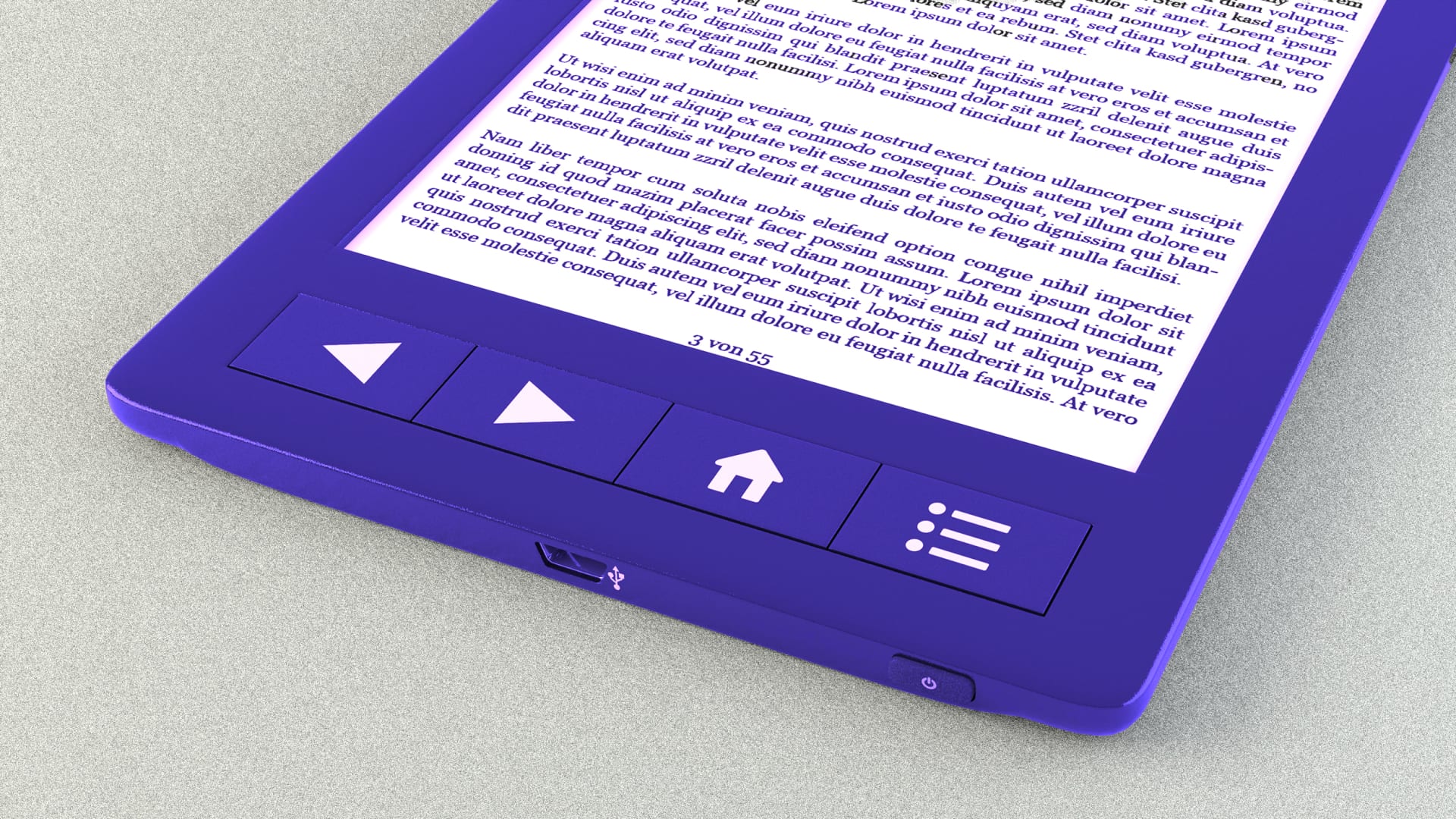| |
|
|\| ART BLOG HUMOR BLOG PHOTO BLOG CULTURE BLOG |:| FOR THE RENAISSANCE MAN & THE POLYMATH WOMAN |/|
| |
|
These Amazon Kindle alternatives have terrifically tactile physical buttons for turning pages.

[Photo: F. Zimmermann/Adobe Stock]
Boy, is my wife mad at Amazon for killing off the wonderful Oasis line of premium Kindle e-book readers. I, too, am upset—she’s due for an upgrade and the holidays are right around the corner.
She likes the Oasis’s buttons—the physical, tangible, clicky-clacky, tried-and-true buttons for turning pages. Amazon says they’re going all in on “touch-forward” devices—i.e. no more buttons.
Fortunately in today’s touchscreen-dominated world, a few brave e-reader manufacturers continue to champion the tactile experience of physical page-turn buttons.
Here are some of the unsung heroes keeping the tradition alive.
Despite facing stiff competition in the e-reader market, Barnes & Noble has consistently included physical buttons in its Nook line of devices.
The latest offerings from the GlowLight series of e-readers start at $150 and incorporate modern features like adjustable color temperature and USB-C charging. And buttons, of course.

Being a bookseller, Barnes & Noble offers a huge variety of downloadable content from its store. If you’re worried about missing out on the ease of downloading books to your Kindle, you’ll feel right at home here.
ABOUT THE AUTHOR
Doug Aamoth is a former writer and editor at TechCrunch and TIME Magazine, and has written for Fast Company, PCWorld, MONEY Magazine, and several other publications. With more than 20 years in consumer electronics, tech media, digital video, and software, his goal is to make technology approachable and useful for everyone, helping readers stay informed, productive, and secure in the digital age. More